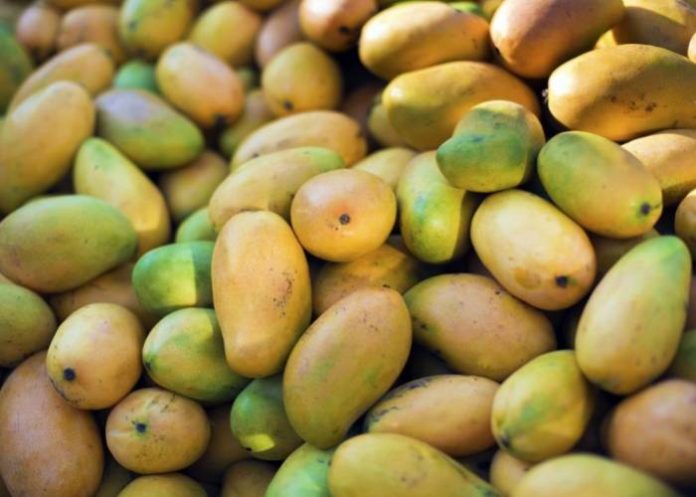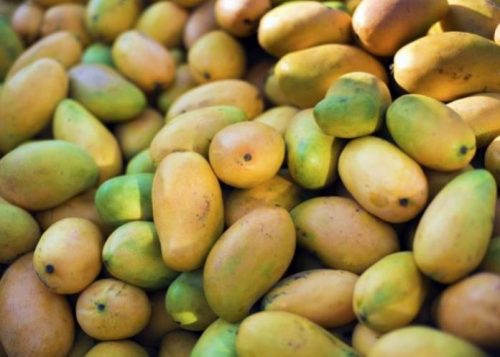
Medical and health experts have warned Nigerians against using chemicals to ripen fruits, saying substances like carbide are responsible for the rising cases of liver, kidney and cancer in the country.
In separate interviews with the News Agency of Nigeria (NAN) in some North Central states of the country, the experts called for stiff penalties for those indulging in the practice so as to curtail it.
Dr Ibrahim Adamu, Director, Public Health, Nasarawa State Ministry of Health, told NAN that chemicals used to ripen fruits could affect the liver and kidney.
“The chemicals could also cause cancer because the entire ripening process is usually unwholesome,’’ Adamu said.
The expert regretted that most people indulging in the act were ignorant of the consequences and needed to be educated on the dangers of their action.
Adamu, who identified carbide as the chemical commonly used to ripen mangoes and bananas artificially, said that the trend was responsible for the rising cases of kidney and liver diseases.
The official said that the ministry, in line with the directive of the Federal Government, had embarked on sensitisation programmes to alert people on the dangers posed by such practice.
“We are now trying to meet with the fruit sellers in order to educate them because some of them may not know the dangers of their actions.
“We also intend to engage security agencies after sensitising the communities and cautioning the fruits sellers on the dangers of their actions in order to stem the tide,” Adamu said.
He said that the ministry was already collaborating with the state House of Assembly to enact laws for effective prosecution of those found to be engaged in such unwholesome practices.
Some fruit sellers in Lafia, who spoke with NAN, confirmed that the practice of using carbide to ripen fruits was common in most urban settlements.
Some of them attributed the practice to the quest for quick turn over, adding that some of the culprits are not aware of the health implication of their actions.
“Most of the artificial ripening agents are used on bananas, mangoes and oranges,’’ a woman fruit seller, who refused to reveal her name, told NAN.
According to her: “If you see banana spotting a green stem under yellowish body that has tiny black spots, carbide has been used on it.
“Normally, the stem falls off easily, but a lot of people do not know this.”
But, while fruit sellers in Nasarawa admit the evil practice, their counterparts in Plateau have claimed that the trend was not common in the hilly state.
Some of them, who spoke with NAN in Jos, Mangu and Pankshin, claimed that they had never applied chemicals on the fruits they sell because they were enlightened and aware of the health implications.
“We hardly force fruits to ripe in Plateau because we source all of them around our houses.
“What a lot of us do is to pluck the fruits from trees likes guava, watermelon and mangoes; in most cases, they are almost ripe. All we do is to continue the natural ripening process at home because when they get ripe on top of the trees, they fall off from the trees and rot,’’ Madam Theresa Abah, a fruit seller at Hwolshe, told NAN.
Malam Adamu Isa, who sells plantain at Zarmaganda Junction in Jos South Local Government Area, said that the product was usually transported from Southern states like Oyo, Edo, Bayelsa and Ebonyi.
“It takes three days for the product to arrive Plateau. During this transit period, they get ripe. Where they do not, we cover the consignment in black nylons or keep them in dark rooms to fast-track the ripening process,’’ he said.
But Miss Happiness Shehu, who described herself as “a lover of fruits’’, said that fruit vendors hardly admit that they apply chemicals to ripen fruits so as not to drive customers away.
She said that fruits like Avocado Pear, when plucked unripe, does not have a good taste, aside the health dangers.
“Usually, it is left for customers to be observant and be careful while deciding where to buy the fruits from.
“Again, consumers of fruits must ensure that the fruits are thoroughly washed before consumption to avoid the health dangers,’’ she advised.
Dr Juliette Ango, a public health expert, said that artificially ripened fruits may contain high acidic content which may be bad for the gastrointestinal system.
“The effects depends on the chemicals used to ripen these fruits; generally, the extra chemicals used for this process serve as carcinogens which is a substance or agent that can cause cancer when it disrupts the Power of Hydrogen(PH) in the body.
“The PH of the body is the measure of hydrogen concentration which is normally 7.35 and 7.45; the body needs to maintain an optimum acid-base balance to ensure that the various processes in the system operate without problems,’’ she said.
Like their Plateau counterparts, many fruit sellers in Kogi have claimed ignorance of artificial ripening processes.
Some of them, who spoke with NAN, said that they were not aware of any chemical used to ripen fruits.
Malam Abubakar Umar, a fruit seller at the old market, Lokoja, told NAN that he was not aware if some fruit sellers were using any chemical to ripen their fruits.
“I usually buy and transport my fruits, especially oranges, in sacks from the north and bring them fresh, to Lokoja for sale to retailers and consumers.
“We only wash them to remove dirt and make them appear clean.
“We try to buy fruits that are close to getting ripe putting into consideration the period of transportation. Most of the time, the fruits become ripe by the time we reach Lokoja,’’ he said.
Umar said that he had never seen a fruits seller using any chemical to ripen fruits in the old Lokoja market.
On her part, Mrs Rafiat Babatunde, who sells banana and plantain, told NAN that her products did not need any ripening chemical.
“I prefer to sell bananas and plantains that are not ripe.
“When banana becomes ripe, one must sell it immediately or risk massive loss. So, there is no need using any chemical in the first place,’’ she said.
Mrs Hellen Eleojo, a consumer, told NAN that she had only seen a video footage on social media where a purported fruits seller was dipping unripe oranges into a chemical to make them ripe.
“It is not supposed to be because it will definitely have adverse effects on human health. I think the government and the relevant stakeholders need to take drastic step to address the issue,” Eleojo said.
Mr Sunday Amos, a nutritionist, said that calcium carbide used to support fruit ripening releases acetylene when mixed with water.
“The acetylene is used for welding; unfortunately, it is the same substance that is used to support fruit ripening,’’ he said.
According to him, the natural air people breath also contains acetylene but the concentration is lower and could be tolerated by the body.
“But when you ripen fruits artificially with calcium carbide, one cannot control that high amount of acetylene that goes into the fruit.
“The effect of eating fruits ripened with calcium carbide can be immediate. It can cause acute reactions in the short-term like headache, vomiting, stomach disorders and allergic reactions, among others.
“In the long term, it could lead to heart failure, skin diseases. But the greatest threat is that it is carcinogenic and causes cancer,’’ he warned.
Dr Salim Aziz, a consultant Nephrologist, said that aside acetylene, calcium carbide had some other impurities that were harmful to health.
“Calcium carbide is a known carcinogen, a cancer-producing chemical. Irrespective of what quantity you may consume, the chemical is known to have harmful effects on the liver and other parts of the body.
“It also contains traces of arsenic and phosphorus hydride which produces several acute and chronic health effects,” Aziz said
According to him, the early symptoms of arsenic or phosphorus poisoning include vomiting, burning sensation in the chest and abdomen, diarrhea, thirst and weakness.
Others include difficulty in swallowing, irritation or burning of the eyes and skin, permanent eye damage, ulcers on the skin, irritation in the mouth, nose and throat.
Throat sores, cough, wheezing and shortness of breath may also occur soon after exposure to the chemical, he said, adding that higher exposure may cause a build-up of fluids in the lungs.
“Eating artificially ripened mangoes causes stomach upset because the alkaline substance is an irritant that erodes the mucosal tissue in the stomach and disrupts intestinal function.
“A prolonged exposure to the chemical could lead to peptic ulcer,” Aziz added.
Meanwhile, fruits dealers/sellers in Makurdi, the Benue capital, have also claimed that they do not indulge in artificial ripening of fruits.
Some of them, who spoke with NAN, said that they were aware of its health hazards and would not indulge in it.
Mbazendan Akwati, a fruit seller, who deals in oranges said oranges, said that she had never ripened her fruits through artificial processes.
“We have enough oranges in the state and cannot use artificial ripening processes on them; they are allowed to ripe naturally.
“’Some of the Benue oranges produce all year round; there is no need to fire them to ripe,” she said.
The dealer opined that the process of forcing fruits to ripen could only happen in places where there was shortage.
Judith Nnaemeka, a banana seller, said that most of her fruits were sourced from Cross Rivers, but could not say whether they were forced to ripen or not.
‘“As a seller, I do not apply any chemical and I do not know any chemical that is used to force fruits to ripen,’’ she said.
Nnaemeka, however, said that the price of banana was not determined by the ripening process.
“’The price is determined by the quality and quantity of the bunch. It is a matter of size. Ripening process is not an issue,’’ she explained.
A consumer, Mr Iorliam Ade, told NAN that he was aware that some mangoes go through some artificial ripening process.
‘“I know that some sellers pour hot water on the mangoes, cover them and allow them to stay for some days.
“I am not so sure that they use chemicals. I only know about hot water. But I will be surprised if they use chemicals,’’ he said.



Comment here